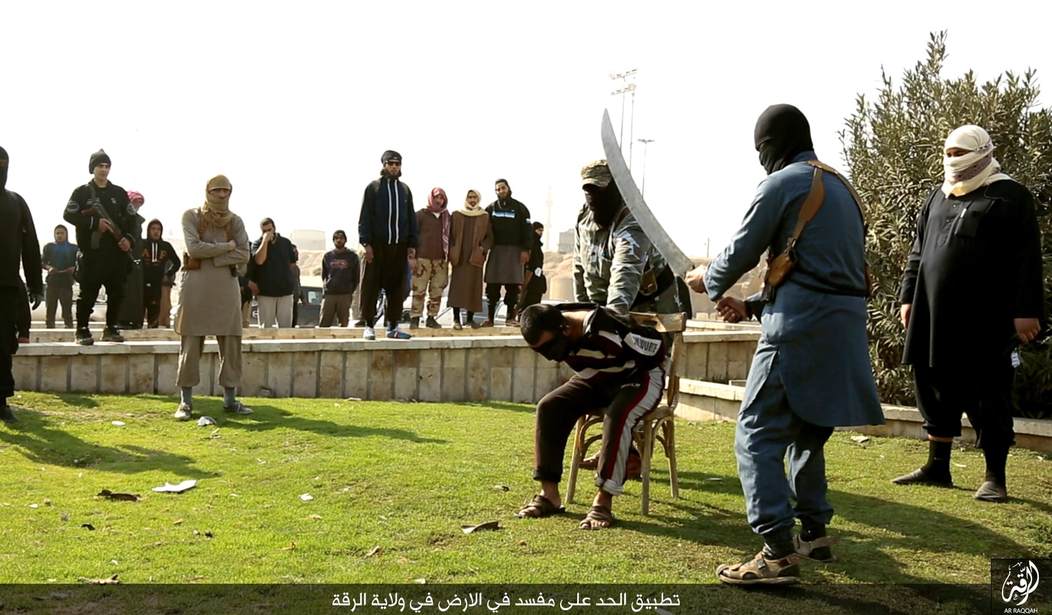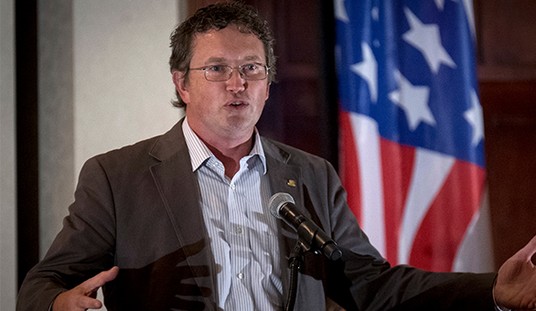WASHINGTON — An initial report from a congressional task force studying claims that intelligence from U.S. Central Command analysts on Iraq and the Islamic State was made more optimistic before presented to the administration found that a review process was influenced by “strongly negative reactions by senior leadership to bad news being reported in intelligence.”
The joint task force to review the whistleblower allegations was a venture of the House Armed Services Committee, the House Permanent Select Committee on Intelligence and the House Appropriations Subcommittee on Defense, led by Reps. Ken Calvert (R-Calif.), Mike Pompeo (R-Kansas), and Brad Wenstrup (R-Ohio).
“After months of investigation, this much is very clear: from the middle of 2014 to the middle of 2015, the United States Central Command’s most senior intelligence leaders manipulated the command’s intelligence products to downplay the threat from ISIS in Iraq,” Pompeo said in releasing the report today. “The result: consumers of those intelligence products were provided a consistently ‘rosy’ view of U.S. operational success against ISIS.”
“That may well have resulted in putting American troops at risk as policymakers relied on this intelligence when formulating policy and allocating resources for the fight,” he added.
The whistleblower allegations that prompted the congressional probe are still being investigated by the Department of Defense Inspector General, but the task force found that “structural and management changes made at the CENTCOM Intelligence Directorate starting in mid-2014 resulted in the production and dissemination of intelligence products that were inconsistent with the judgments of many senior, career analysts at CENTCOM.”
This issue of products “consistently more optimistic regarding the conduct of U.S. military action than that of the senior analysts,” including in other parts of the intelligence community, extended to press releases, public statements and congressional testimonies — such as a CENTCOM official declaring that the assault to take back Mosul, which still hasn’t happened, could begin in spring 2015, a statement that ISIS was “losing ground” and cornered into a “defensive position” a week before the fall of Ramadi, and the CENTCOM commander Gen. Lloyd Austin’s testimony to Congress that ISIS was in a “defensive crouch.”
They found overall that “the leadership environment within CENTCOM and its Intelligence Directorate deteriorated significantly following the 2013 departure of Marine General James Mattis and his senior intelligence leaders.” Mattis was recruited by some this year for an independent White House run, which he declined.
Austin took command after Mattis, and was replaced this March by Gen. Joseph Votel.
During Austin’s tenure, 40 percent of analysts who responded to a survey reported they had “experienced an attempt to distort or suppress intelligence in the past year.”
The task force said the “environment slowly began to improve” after the inspector general began probing the claims last year, but it took Votel’s arrival and a new head of CENTCOM’s intelligence directorate to see marked improvements.
The report said congressional investigators, who did not have access to all requested materials, found “no justifiable reason why operational reporting was repeatedly used as a rationale to change the analytic product, particularly when the changes only appeared to be made in a more optimistic direction.”
“By supplanting analytic tradecraft with unpublished and ad hoc operational reporting, Joint Intelligence Center (JIC) leadership circumvented important processes that are intended to protect the integrity of intelligence analysis.”
Among recommendations to new CENTCOM leadership to keep steering the ship in the right direction, the task force called upon the Defense Intelligence Agency to “take ownership of its role as leader of the Defense Intelligence Enterprise, and significantly increase its analytic oversight and review of intelligence products generated by the Combatant Command (COCOM) intelligence centers.”
The DIA’s inspector general received the May 28, 2015, complaint from a DIA analyst assigned to CENTCOM charging that “senior leaders within the CENTCOM Intelligence Directorate and JIC, including the Director of Intelligence and other senior intelligence staff, violated regulations, tradecraft standards, and professional ethics by modifying intelligence assessments to present an unduly positive outlook on CENTCOM efforts to train the [Iraqi Security Forces] and combat ISIL.”
The congressional panel interviewed five CENTCOM analysts in addition to the one who logged the complaint. Four more analysts declined requests to be interviewed, with House investigators “concerned that some of the analysts may have done so out of fear of potential reprisals for their testimony.” Other officials in the intelligence process were interviewed as well.
Analysts described a new intelligence “coordination” process that went into place after ISIS took Mosul in June 2014, including a new CENTCOM intelligence “fusion center” creating an expanded daily intelligence summary. “In some analysts’ minds, senior leaders changed the size and scope of the INTSUM in order to be able to better control the content of the product. Other analysts explained that the retooling was a legitimate improvement to better address the needs and interests of the CENTCOM commander and other senior customers,” the report states. Analysts were told to stop communicating with other analysts in the intelligence community and leave “coordination” up to senior officials. Those restrictions “have since been partially rescinded.”
Under the “coordination” process, though, “analysts were waiting in line for a substantial period of time for senior leadership feedback before products were able to be released.”
“Senior leaders voiced their opinions that CENTCOM analysts did not adequately account for operational details and observations provided by U.S. and coalition units directly engaged in countering ISIL or working with those who were,” while “analysts indicated that senior leaders often countered intelligence reporting with such information.”
“While senior leaders denied that operational reporting was biased in a particular direction, multiple analysts disagreed, noting that the deference to operational reporting resulted in analysis that was more positive regarding the capabilities of the ISF and the progress of the fight against ISIL than could be justified or supported by the vetted, serialized intelligence reporting on which analysts customarily rely,” the report continues.
“According to multiple interviewees, operational reporting was used as a justification to alter or ‘soften’ an analytic product so it would cast U.S. efforts in a more positive light. No interview provided any instances where operational reporting was used as a justification to come to a more pessimistic conclusion. Additionally, numerous interviewees indicated that analytical products which conflicted with operational reporting were routinely subject to more stringent scrutiny than those that did not.”
The task force theorized that calls between CENTCOM leaders and the Director of National Intelligence — several times a week, before the DNI’s daily briefing to the president — may have given CENTCOM leaders “outsized influence on the material presented to the president outside of formal coordination channels.”
The report did not mention any direct influence from the White House in this intelligence process. It stressed that CENTCOM senior leaders claimed changes to the coordination and review process “were intended to improve analytic tradecraft and timeliness, but many analysts perceived them as an intentional effort to bias the intelligence analysis.”
Budget-wise, the House panel noted that “by using operational reporting to supplant detailed analytic intelligence efforts, CENTCOM risks wasting significant taxpayer resources on the salaries of hundreds of intelligence analysts.”
“Interviewees described the leadership environment in 2014 as significantly more insular than under previous CENTCOM commanders, and the Joint Task Force heard multiple reports of strongly negative reactions by senior leadership to bad news being reported in intelligence,” the report added. “Whistleblower allegations, survey results, and analysts’ comments in multiple interviews and meetings all indicate significant deficiencies in the leadership of CENTCOM that need to be addressed by the new CENTCOM commander and the new Director of Intelligence.”
Wenstrup noted that “unfavorable intelligence reports underwent significant scrutiny and were likely to be omitted unless they could be confirmed with virtually 100 percent certainty.”
“As a lieutenant colonel in the Army Reserve, I understand that intelligence is not always certain. Possibilities and probabilities can be just as critical for decision makers,” the task force co-chairman added. “Additionally, despite nearly nine months of review, we still do not fully understand the reasons and motivations behind this practice and how often the excluded analyses were proven ultimately to be correct.”
“We cannot win the war against ISIS with incomplete intelligence.”










Join the conversation as a VIP Member